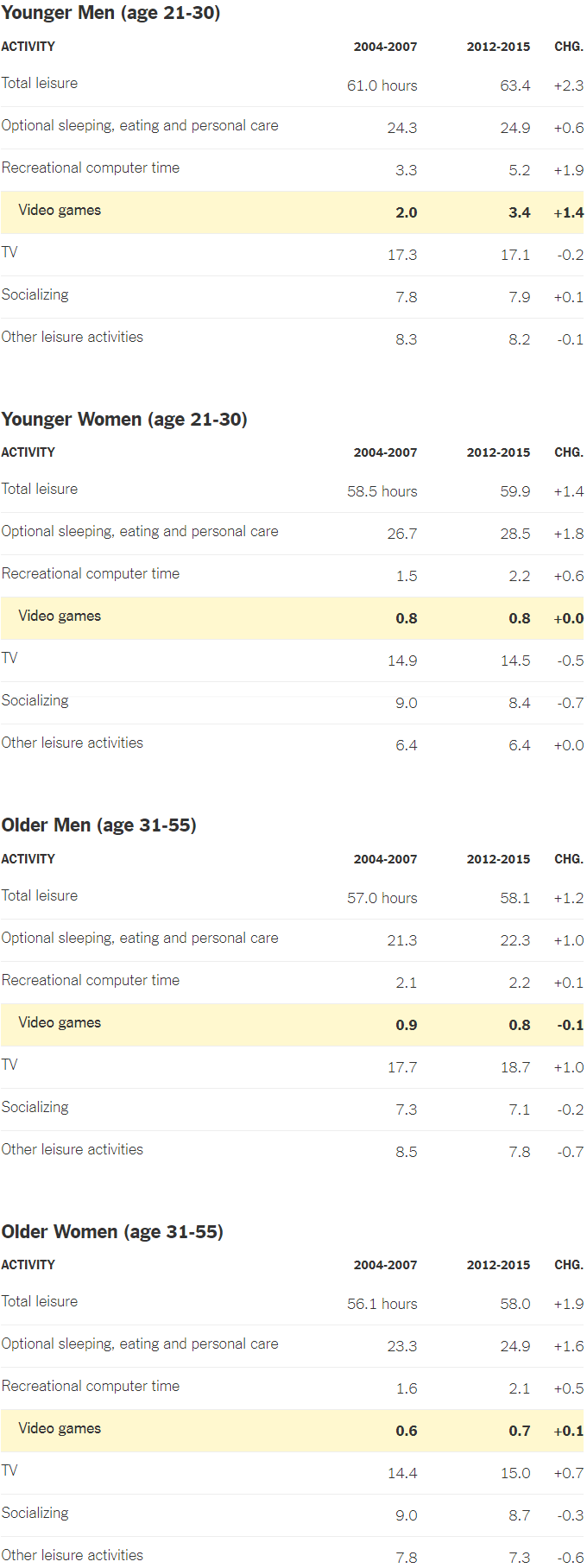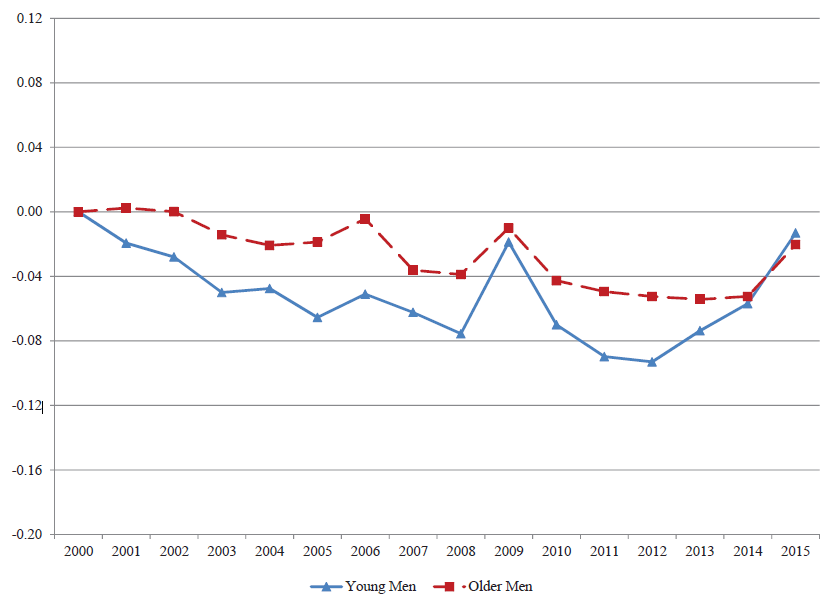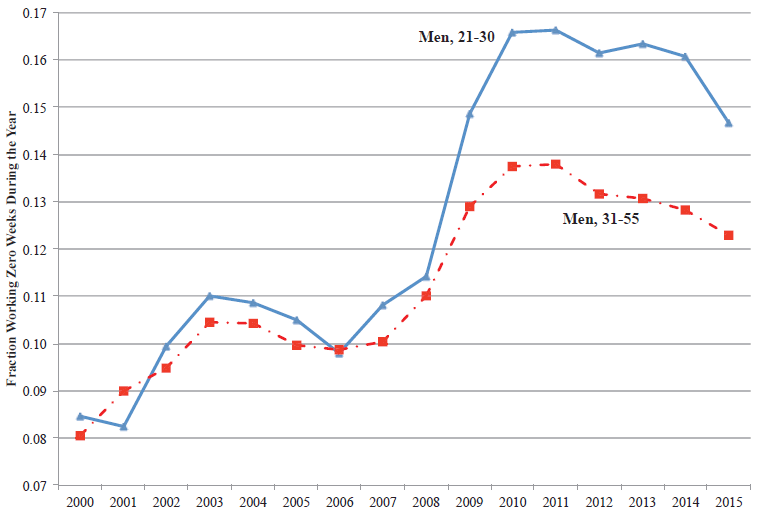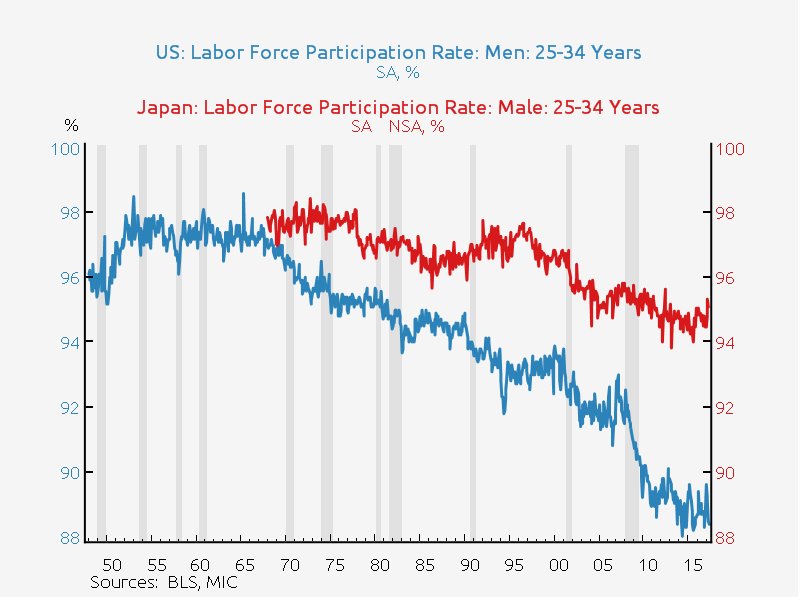Young men are less interested in career, and more - in computer games

Illustration: Sam Woolley
Economists at the National Bureau of Economic Research of the United States yesterday published a report on Leisure Luxuries for Young Men ( pdf ) with up-to-date statistics and analyzes on the US labor market. The researchers cite figures on the change in unemployment and the popularity of video games in different demographic groups in 2000-2015. The authors of the report believe that now enough evidence has been gathered to make a conclusion: there is a causal link between these two indicators (games and unemployment).
Statistics show that young men aged 21-30 differ from other demographic groups. The difference is in how they spend their free time.
Firstly, they have much more free time: on average, 63.4 hours per week, according to statistics for 2012-2015. Compared with 2004-2007, the amount of free time increased by 2.3 hours per week, according to official state statistics on the use of time by US citizens. For comparison, in young women, the amount of free time during this period increased by only 1.4 hours per week.
The fact that free time has become more, it is not surprising. The same is observed in other demographic groups: both women and men. But only young men drastically increased the amount of time they spend “relaxing at the computer,” in particular, video games. Compared with the previous time period, this number increased from 2.0 hours per week to 3.4 hours, that is, immediately by 70%! At the same time, older men and women of all ages devote about the same amount of time to video games as they did before, changes in the limits of statistical error (see table below). For example, in young women, the time of computer games has not increased at all, although they also have a little more free time. The authors of the work explain that women choose other games than men - they often play casual games on mobile phones, which do not take much time.

If we sum up the figures for the year, then from 2000 to 2015, American men between the ages of 31 and 55 began to work less by 163 hours a year, and men from 21 to 30 years less by 203 hours. The difference is considerable - as much as 40 hours, that is, a full working week. Why did the youth reduce working time much more than older people?
Experts cite several reasons: globalization, technological change, the economy tilts into the service sector, where employers are less inclined to hire too young employees. But a group of economists from the National Bureau of Economic Research of the United States is confident that the question should be put differently: why do young men not want to work?
Erik Hurst and his colleagues estimated that since 2004 computer games have taken away young people from working hours from 15 to 30 hours a year. Investigated used economic recession as a natural environment for experiment - they studied how people with unexpectedly appeared free time spend it, than do and how entertain themselves. They then estimated how the increase in video game time affects the number of hours worked.
Statistics excluded students full-time students. The figures show that young men have practically not increased the time they devote to other matters - neither to care for children, nor to watch TV, nor to communicate. Only computer games + 70%.
In principle, in such indicators there is a certain sense, writes the NY Times. The average median salary of men has been at the same level for several decades.


The index of real wages for men in 2000-2015, where the year 2000 was taken as 0, taking into account the price index (inflation). The top chart shows changes in salaries of young and more adult men. The bottom chart shows salary changes for less educated and more educated men.
At the same time, the quality of computer games has increased significantly over this time. In the early 90s, most computer games were ridiculous crafts like “Tetris” or “Super Mario”, which they played for an hour - and got tired of it (with rare exceptions like Elite, Star Control, Jagged Alliance, “Civilization”, Capitalism, SimCity and a few others). Now you can hang out in virtual reality for days and weeks, passing the most difficult and exciting missions with friends from your clan.
The graph below shows the proportion of men aged 31-55 years (squares) and 21-30 years (triangles), who worked 0 weeks over the last year. As you can see, until about 2008, the graphics are flush, and then the youth abruptly go into the lead.

Experts believe that the social aspect of modern video games is very important and promotes involvement in the game: “Thanks to these games you wake up in the morning with one goal: I have to increase my skill, teammates are counting on me, my friends in online rely on me,” says the game. Designer Jane McGonigal. “This is an established order, and the daily progress in the game well replaces the traditional work.”
Adam Alter, a professor of marketing and psychology at New York University who studies digital addictions, draws attention to the fact that modern video games, unlike TV shows and concerts, do not end there. In most forms of entertainment, there is a signal to stop, a hint at the end of a particular episode or part, but in many video games there are no such signals.
Not all experts agree with the conclusions made by the authors of the Leisure Luxuries report on the Labor Supply of Young Men . Some people pay attention to the fact that in other countries where computer games are very popular, there is no such gap in the statistics of working time among young men and the rest of the population. For example, in Japan, there is no decrease in the working ability of men, although the popularity of video games is also growing.

Perhaps the reason is not in computer games, but in some other factors specific to the United States.
On the other hand, even if young people fall out of the work process - what's wrong with that? It is logical to have fun and have fun in 20-30 years, and you can work on a computer after 80 years, says Eric Hurst. We add that it is also logical to take a vacation for several years at the time of the economic crisis, when salaries decrease and requirements for employees increase. It is better to work in nourishing time for a high salary, and in crises it is more logical to rest (to raise a skill, to be engaged in education, to travel, etc.).
All Articles